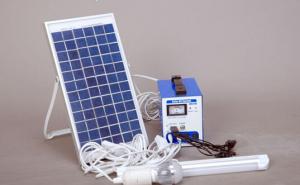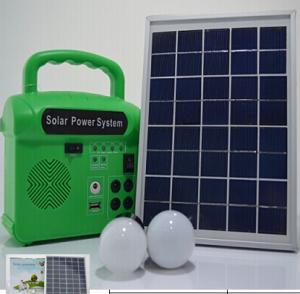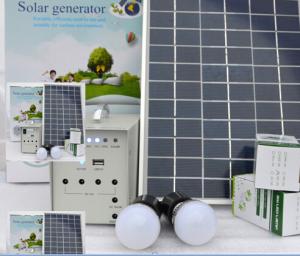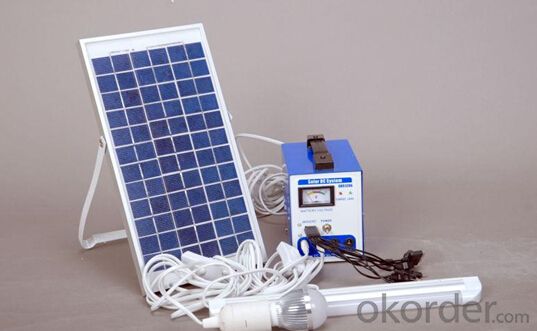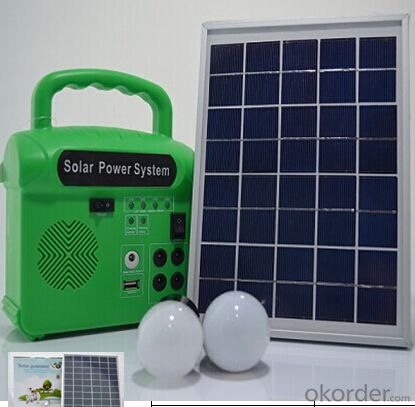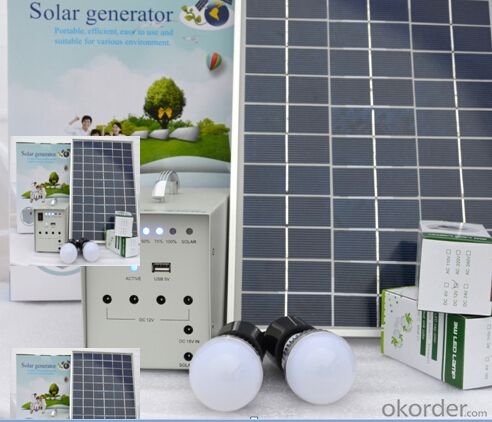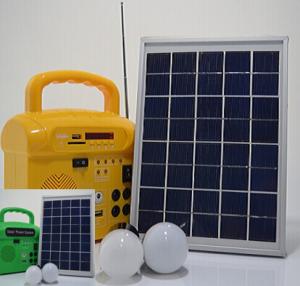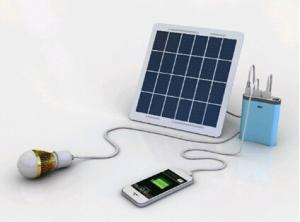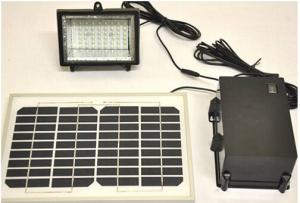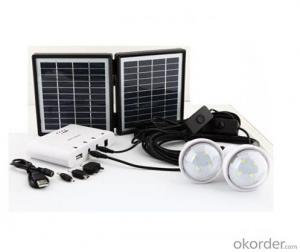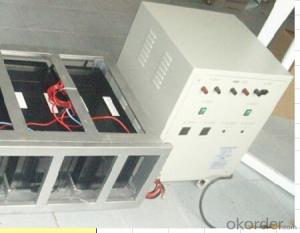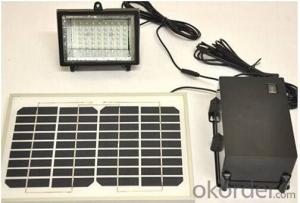Solar Energy Systems Nappanee - CNBM Solar Home System Roof System Capacity-30W
- Loading Port:
- Shanghai
- Payment Terms:
- TT or LC
- Min Order Qty:
- 300 pc
- Supply Capability:
- 10000 pc/month
OKorder Service Pledge
OKorder Financial Service
You Might Also Like
Introduction of our company
We are the first solar racking system developer in China, who committed to solar racking system R&D, producing and marketing for about 10 years. We were the OEM for Sunpower, and are one of the largest rooftop solar racking system supplier in Japan and Australia now.
We persists in taking the path of specialization, scale and internationalization development. We import the international advanced technology equipment for manufacturing , assembling and testing. Frontier solar racking system is with own patents. The dynamic wind resistance reliability of our racking system can up to 270km/h. Therefore, superior product quality with more than 25 years' durability and perfect after-sale service have earned us a high reputation in PV industry worldwide.

Working Principle of Solar Roof System
The stand alone Solar Home System is an off-grid solar system which uses batteries to store the solar energy. Stand alone solar system solutions design for those who are not able or willing to connect to electricity grid.
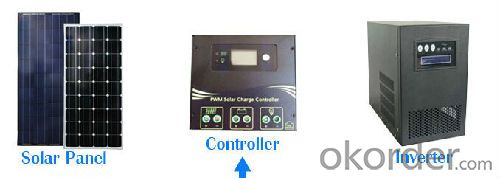
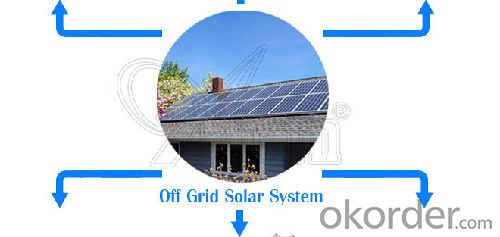

Specification of Solar Home System
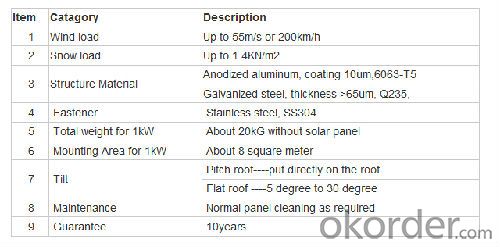
Product Features of Solar Home System
Off grid solar power system is mainly used for application with relatively-small power consumption, and the areas have no grid network coverage, or grid power is unstable or outage condition.
It’s composed of solar panels, hybrid solar inverter, battery bank, solar panel mounting racks, and other accessories required fora complete home solar power system.
The battery bank gives a stable power output to the solar inverter which converts DC to AC to power loads, and provides power backup in rainy or cloudy days.
The solar panels generate electricity at daytime and charge the battery bank.
The off grid home solar power system provides grid power bypass in case of battery power shortage when sunshine is not enough.
All the off grid home solar power system configurations are worked out by scientific calculation and design.
Advantage of Our Solar Home System
1.Safety and easy installation,Plug and play systems;
2.Good quality panel to ensure the high efficiency and long life needs;
3.Solar Automatic lighting controller :with adjustable run times, over-current protection;
4.Solar Batteries: Maintenance free, long life batteries
5.Lighting Source: LED lamp /Lantern (Fixed/Movable)
6.Flexible designs per client requests;
Terms and Conditions
1. Trade terms: FOB Shanghai
2. Payment terms: 30% T/T, balanced before shipment/ LC at sight before shipment. Actual Terms can be negotiated for big order.
3. Package: Exported standard package suitable for tough handling and sea transport.
4. Delivery: Goods to be ready within 10~30 days depending on order quantity.
5. Warranty: 10 years for solar panel, 2 years for controller/inverter/battery.
FAQ
Q: Could you introduce the background of your company?
A: We are a Group corp. with 1GW capacity in China, which is Okorder’s registered VIP Supplier, possess Financial Service from Okorder.com.
Q: Required mainly certificates (CE&IEC/TUV/RoHS)?
A: Our products are certificated by CE RoHS, IEC, ISO, TUV, UL etc.
Q: Your main exported market is?
A: Main markets of our products is: South-east Asia, Mid-east, Arica, East Europe and Latin America.
- Q: Can solar energy systems be used for desalination?
- Yes, solar energy systems can be used for desalination. Solar desalination involves using solar energy to power the desalination process, typically through either solar thermal or solar photovoltaic technologies. This renewable energy source can be harnessed to heat water or generate electricity, which can then be utilized to remove salt and other impurities from seawater or brackish water, making it suitable for drinking or agricultural purposes. Solar desalination offers a sustainable and environmentally friendly solution to address water scarcity issues in regions with abundant sunlight.
- Q: Can solar energy systems be used in areas with high temperatures?
- Yes, solar energy systems can be used in areas with high temperatures. In fact, solar panels are designed to withstand and operate efficiently in a wide range of temperatures. While high temperatures can slightly affect the efficiency of solar panels, modern technologies and materials have been developed to minimize any negative impact. Additionally, solar energy systems can be optimized through proper installation and maintenance to ensure maximum performance in hot climates.
- Q: Can solar energy systems be used in areas with strict building codes or historical preservation restrictions?
- Yes, solar energy systems can be used in areas with strict building codes or historical preservation restrictions. In such cases, the installation of solar panels may require careful planning and compliance with specific guidelines to ensure architectural aesthetics and historical significance are preserved. This can be achieved through the use of alternative mounting options, such as ground-mounted or solar carport systems, that do not impact the building's exterior. Additionally, advancements in solar technology have allowed for the development of sleek and discreet panels that blend seamlessly with the surrounding architecture, making them more acceptable in historically preserved areas.
- Q: Can solar energy systems be used for powering electric bus charging stations?
- Solar energy systems have the capability to be utilized in the operation of electric bus charging stations. To harness sunlight and convert it into electricity, solar panels can be situated on the rooftops of the charging stations or in close proximity. The resulting electricity can subsequently be employed to charge the batteries of electric buses. Solar panels generate clean, renewable, and sustainable energy, which renders them a perfect option for powering electric bus charging stations. Moreover, the utilization of solar energy diminishes reliance on fossil fuels and aids in the mitigation of greenhouse gas emissions, thus presenting an environmentally conscious solution.
- Q: What is the role of solar water pumps in solar energy systems?
- The role of solar water pumps in solar energy systems is to utilize solar power to pump water for various applications such as irrigation, livestock watering, and domestic use. These pumps are designed to operate efficiently using solar energy, reducing dependence on grid electricity and minimizing both operational costs and environmental impact. Solar water pumps play a vital role in harnessing the renewable energy potential of the sun and providing sustainable water solutions in off-grid and remote areas.
- Q: How do solar energy systems impact the energy consumption of buildings?
- Solar energy systems have a significant impact on the energy consumption of buildings. By harnessing the power of the sun, these systems generate clean and renewable electricity, which can offset the need for grid-based energy consumption. One of the primary ways solar energy systems affect energy consumption is by reducing reliance on non-renewable sources such as fossil fuels. Traditional energy sources like coal, oil, and natural gas contribute to greenhouse gas emissions and global warming. Solar power, on the other hand, produces electricity without any harmful emissions, making it an environmentally friendly alternative. Solar systems also help to lower the overall energy demand of a building. By generating electricity on-site, buildings can reduce their reliance on the electrical grid. This not only decreases the load on the grid but also mitigates the risk of power outages during peak demand periods or natural disasters. Furthermore, solar energy systems can lead to financial savings for building owners. With solar panels generating electricity, the building consumes less power from the grid, resulting in reduced utility bills. In some cases, excess energy generated by the solar system can be fed back into the grid, allowing building owners to earn credits or even receive payments from utility companies through net metering programs. Solar energy systems also offer long-term benefits for buildings. Solar panels have a lifespan of around 25 to 30 years, and their maintenance costs are relatively low compared to other energy systems. This means that once the initial investment is recouped, the building can enjoy years of clean and affordable energy. In conclusion, solar energy systems have a positive impact on the energy consumption of buildings by reducing reliance on non-renewable sources, lowering overall energy demand, providing financial savings, and offering long-term sustainability.
- Q: Can a solar energy system power my entire home?
- Your entire home can be powered by a solar energy system. Its ability to meet your home's energy needs is determined by the size and capacity of the system. Several factors, including your household's average daily energy consumption, the available space for solar panels on your roof or ground, and the amount of sunlight in your location throughout the year, need to be taken into account to determine the appropriate size. By installing a solar energy system of the correct size and adopting energy-efficient appliances, LED lighting, and energy-saving practices, it is possible to generate enough solar energy to power your entire home and even sell any excess electricity back to the grid. It is advisable to seek advice from a professional solar installer who can evaluate your specific energy requirements and design a solar energy system that suits your needs.
- Q: How do solar energy systems impact property value?
- Solar energy systems can have a positive impact on property value by increasing its market appeal and desirability. Research suggests that homes equipped with solar panels tend to sell faster and at higher prices compared to similar homes without solar installations. Additionally, solar energy systems offer potential cost savings on electricity bills, making the property more attractive to potential buyers.
- Q: How do solar energy systems impact the quality of air and water?
- Solar energy systems have a positive impact on the quality of air and water. Unlike traditional sources of energy such as coal or gas, solar energy does not produce harmful emissions or pollutants, thus significantly reducing air pollution. This not only improves air quality but also helps in reducing the greenhouse gas emissions responsible for climate change. Solar energy systems also have minimal impact on water quality. While some water is used in the manufacturing process of solar panels, the amount is significantly lower compared to other energy sources like fossil fuels. Additionally, solar energy does not require water for its operation, unlike thermal power plants that consume vast amounts of water for cooling purposes. Moreover, the use of solar energy reduces the dependence on fossil fuels, which are often extracted through environmentally damaging methods like fracking or oil spills. By shifting to solar energy, the risk of water contamination from these activities is significantly reduced. Furthermore, solar energy systems contribute to the conservation of water resources. Traditional energy sources, such as coal or gas power plants, require huge amounts of water for their operation, which can strain local water supplies and ecosystems. Solar energy, on the other hand, does not require water for its generation, thus helping to conserve water resources and reducing the stress on aquatic ecosystems. In conclusion, solar energy systems have a positive impact on both air and water quality. They help reduce air pollution, greenhouse gas emissions, and the risk of water contamination, while also conserving water resources. By embracing solar energy, we can promote a cleaner and healthier environment for future generations.
- Q: How long does it take to install a solar energy system?
- The time it takes to install a solar energy system can vary depending on factors such as the size of the system, complexity of the installation, and the availability of equipment and manpower. However, on average, a typical residential solar panel installation can take anywhere from one to three days.
Send your message to us
Solar Energy Systems Nappanee - CNBM Solar Home System Roof System Capacity-30W
- Loading Port:
- Shanghai
- Payment Terms:
- TT or LC
- Min Order Qty:
- 300 pc
- Supply Capability:
- 10000 pc/month
OKorder Service Pledge
OKorder Financial Service
Similar products
Hot products
Hot Searches
Related keywords
